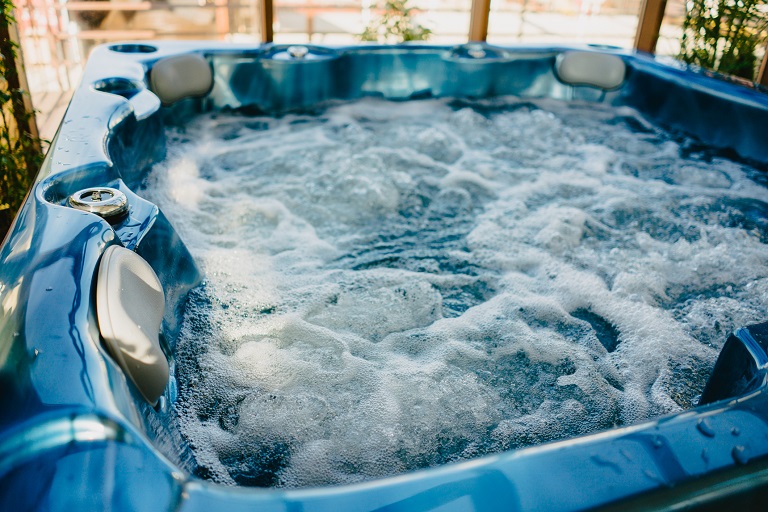
Wondering how much it costs to run a hot tub? Discover average monthly and yearly costs, key factors, and tips to keep your hot tub expenses in check.
Let’s turn up the heat


Saunas and hot tubs both offer many health benefits through heat therapy.
Saunas offer a quiet place to meditate or just relax.
Hot tubs can be a great place for social gatherings.
Hot tubs are typically easier to install than saunas.
Saunas often cost less than hot tubs to install and maintain.
Saunas and hot tubs are both forms of heat therapy that offer many of the same benefits to their users. Both saunas and hot tubs can facilitate better sleep, offer positive cardiovascular benefits in the form of lower blood pressure and increased circulation, help with weight loss, relieve pain, and strengthen the immune system. But they also come with a few key differences, including price, aesthetic value, and maintenance needs.

| Sauna | Hot Tub |
|---|---|
| 120–175 degrees Fahrenheit | 100–102 degrees Fahrenheit |
| Indoor or outdoor | Mostly outdoor |
| Fits 2–4 people | Fits 4–6 people |
The first key difference between a sauna and hot tub is in their appearance and how each offers the benefits of heat therapy. A sauna is essentially a very small room that can be heated to between 120 and 175 degrees Fahrenheit. Infrared saunas fall on the lower end of the heat spectrum, while traditional saunas can get hotter.
Hot tubs are large square or round tubs filled with water that is typically heated to around 100 degrees Fahrenheit and includes massaging jets. They can also include light or fountain features and can double as a gathering place, while an average-sized sauna will likely only be big enough for two to four people, though they can be built bigger.
Saunas can be installed indoors or outdoors while a hot tub is typically installed outdoors. Other key differences include price, maintenance, and ease of installation.

Saunas are available in traditional or infrared models. Traditional saunas are built from wood and heated by gas, fire, or electricity, and some offer an opportunity for users to create steam by pouring water over hot stones. Infrared saunas heat the body directly with infrared light.
| Pros | Cons |
|---|---|
| Offers health benefits | May take some time to get used to |
| Aesthetically pleasing | Can feel uncomfortably hot for some users |
| Easy to maintain | Will likely require professional installation |
Best for:
Homeowners who want a low-maintenance wellness installation
Homeowners who use hot-cold therapy
Those who want to reduce stress and strengthen their immune system
Saunas are a great addition to a wellness routine. There are numerous benefits to incorporating time in the sauna that range from relaxation and increased circulation, to improved post-workout recovery, to even weight loss in some users. Buying a sauna can provide a quiet place for meditation, as well as a pleasant space for gathering with friends and family, especially in cold weather.
There are two options for saunas—traditional and infrared—and you should choose the best option based on personal needs. Saunas can be an aesthetically pleasing addition to the interior or exterior of a home. Saunas are relatively easy to maintain and should be wiped down after each use. Other than that, they can be spot-cleaned periodically if stains or discoloration appear. If wooden areas become warped, they can be sanded to level them out. Finally, they are more energy efficient than a hot tub because they only run when they are in use.
Saunas are more difficult to install than hot tubs, especially if they are installed indoors, and should most likely be installed by a professional. It also may require an electrician to make sure the switches and heater controls are working properly. While saunas likely will not cost as much to run as a hot tub, they can add between $10 and $20 per month to your electric bill.

A hot tub is a large tub, typically installed outdoors, that heats water and includes massaging jets. Used for relaxation and heat therapy, hot tubs offer a place to unwind after a long day or a place for friends and family to gather. Hot tubs are often installed at surface level, but it is also possible to install an in-ground hot tub.
| Pros | Cons |
|---|---|
| Offers health benefits | Requires regular maintenance |
| Can be used for entertaining | Typically installed outdoors |
| Easy to install | May not fit the home’s aesthetic |
Best for:
Homeowners that enjoy entertaining and want to use it as a gathering place
Homeowners who want to increase circulation and reduce inflammation
Those who want to add a space to wind down at the end of the day
Hot tubs are a very versatile addition to your home. Not only do hot tub benefits include improved circulation, massage, relaxation, and better sleep, but they are typically located outdoors, which can offer access to nature, depending where you live. The soothing sounds of bubbling water combined with the surrounding sights and sounds make them the ideal place to spend an evening.
Small hot tubs can hold two to four people, while large versions can hold seven or more. This makes them a great place for gathering, talking, and laughing with friends and family. Because they do not require plumbing, just a compatible outlet, they can be installed with relatively little effort and filled with a hose.
Hot tubs should be covered after each use, and the water should be circulated every day, whether or not you use it. Some spas have this as an automatic feature which will reduce the amount of active maintenance required. You should also skim it regularly to remove any debris, including sticks and leaves, from the surface. They also add between $20 and $30 per month to the electric bill.
Hot tubs also need a certain chemical balance, which should ideally be checked a few times per week. Otherwise, you risk exposing yourself to certain health hazards caused by bacterial infections.
While hot tubs can be installed indoors, they are more often installed outdoors, which means you will have to brave the elements if you want to use them in the winter or during poor weather. They are also extremely heavy when filled with water and people, so the place where they are located must be sufficiently reinforced prior to installation.
Compared to saunas, hot tubs are not the most aesthetically pleasing choice, and while there are lots of ways to improve the appearance of hot tubs, including landscaping and choosing an upgraded cover, they may not fit with the overall aesthetic of the home.
Made of wood, saunas offer a cozy and warm aesthetic whether they are indoors or out. While hot tubs can be upgraded with beautiful cabinetry and different colors, they do not generally have the aesthetic appeal of a sauna.
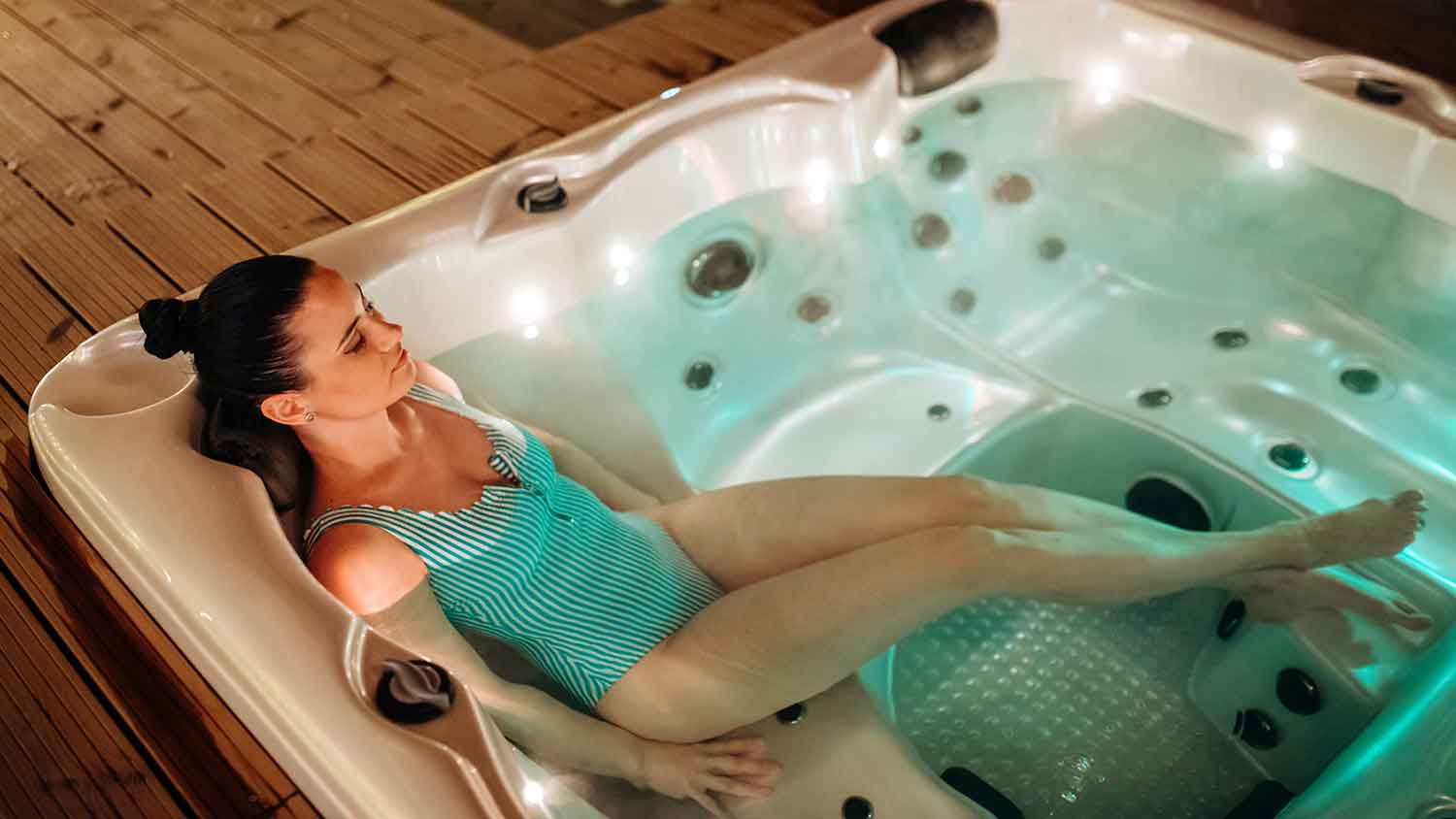
Saunas and hot tubs both offer a range of options and customizations, but sauna options are focused mainly on infrared vs. steam saunas. Seating is typically a simple bench, and some lighting options are available in an infrared sauna. Hot tubs, on the other hand, offer different ergonomic seating options, smart controls, massage jets, water features, lighting, Wi-Fi compatibility, and more.
Depending on the style, brand, and customization options, the price of both saunas and hot tubs can vary widely, falling between $3,000 at the lower end and reaching $16,000 or more on the high end. Saunas win this category because the cost to build a sauna often falls into the lower end of this price range, whereas the hot tub cost can easily fall in the higher range. Hot tubs also have higher operational and ongoing maintenance costs than saunas, particularly if you hire someone to do the latter.
All you really need to install a hot tub outdoors is a flat spot in your yard with a solid, level base. This can be on an existing deck (reinforced if necessary) or patio, or you can prepare a spot on the lawn. Then the tub simply needs to be plugged in and filled. You should always contact a hot tub installer near you for help. Saunas typically come as a kit that needs to be assembled in a suitable location either indoors or out. You will need to build a foundation for it or convert an existing room and then have an electrician come to ensure everything is wired correctly.
Hot tubs require regular water circulation, chemical testing and balancing, and debris removal. You will also have to change the filters regularly. Saunas, for the most part, are low maintenance. Most maintenance issues will come as a result of moisture buildup, but because a sauna is made of wood, you should be able to sand any areas that are warped or discolored to take the sauna back to its original beauty.
From average costs to expert advice, get all the answers you need to get your job done.

Wondering how much it costs to run a hot tub? Discover average monthly and yearly costs, key factors, and tips to keep your hot tub expenses in check.
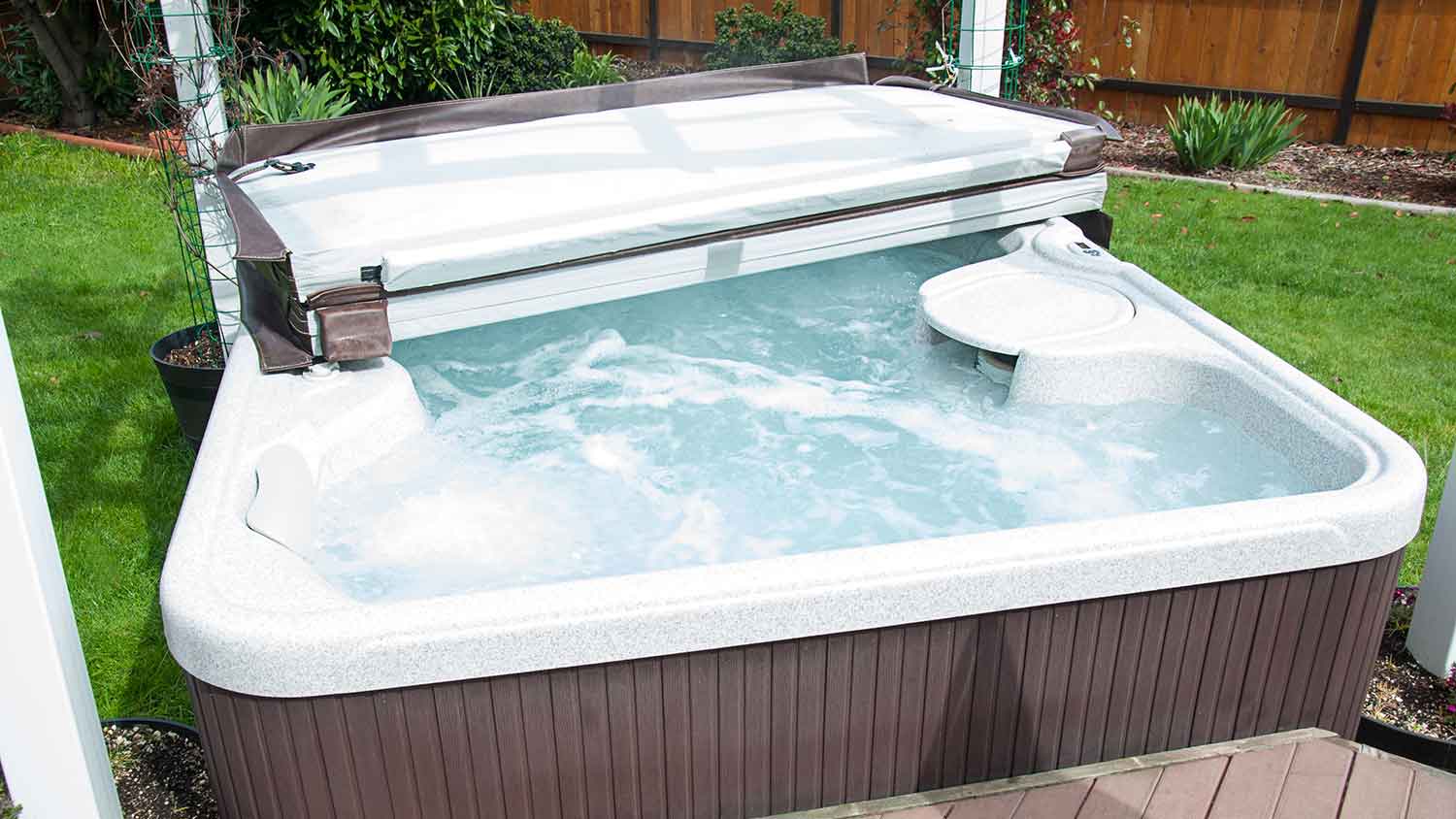
Wondering about hot tub cover costs? Learn what impacts pricing, compare materials, and discover ways to save on your next hot tub cover purchase.

Swim spa costs vary, but each unit offers the benefits of a pool and hot tub combined. Use this guide to plan your budget.
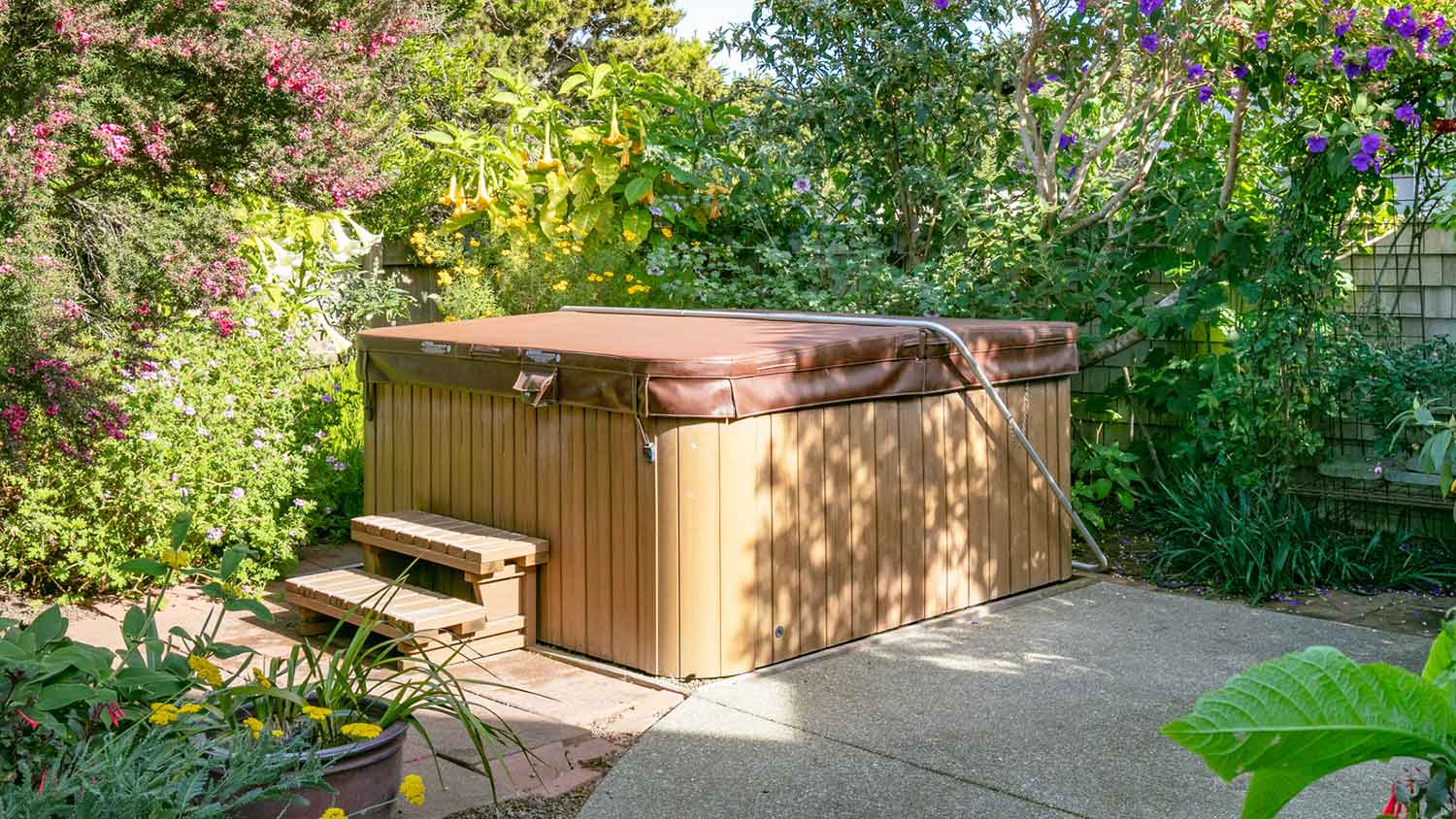
Struggling to lift the cover off of your hot tub? If you're wondering "Why is my hot tub cover so heavy," the good news is it's the cover, not you.
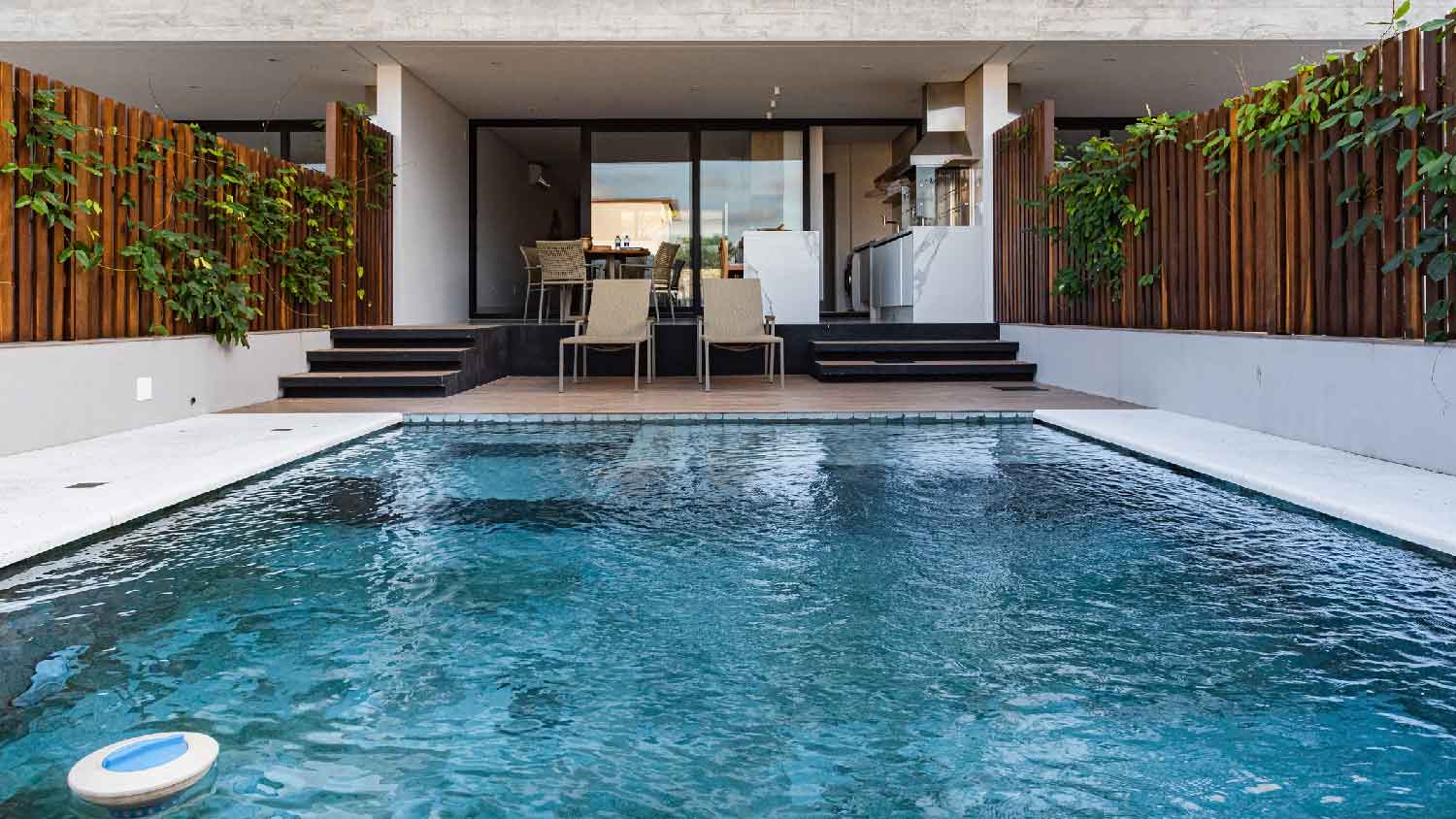
When you go for a dip in your pool, it should be refreshing, not slimy. Get answers to "why is my pool slimy" and find out how to fix it.

If you’re looking to get your backyard summer-ready, use this guide to learn pool opening costs, budget appropriately, and how to save money.